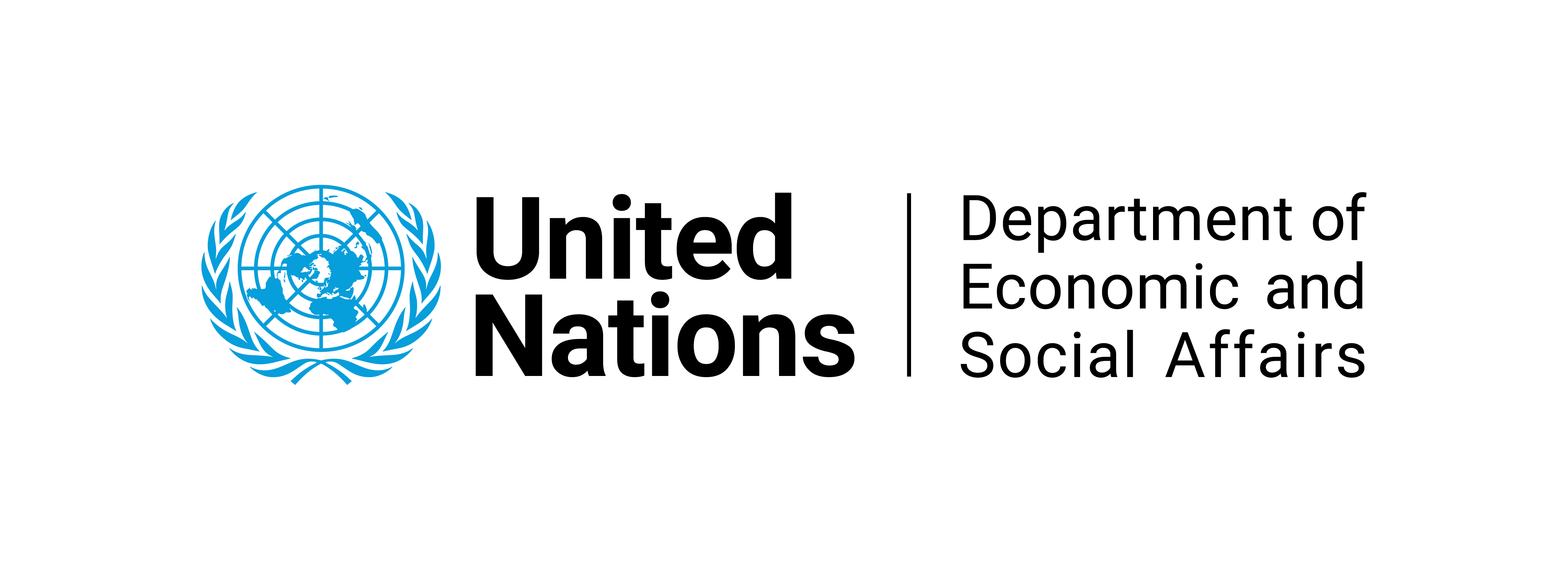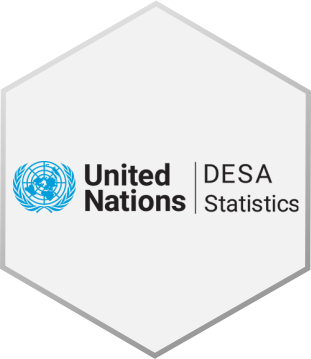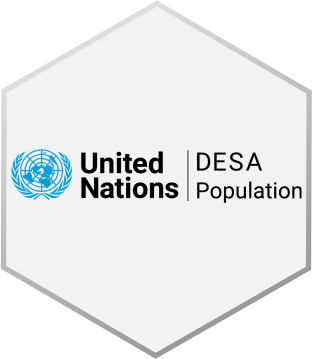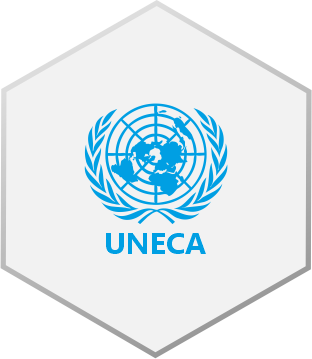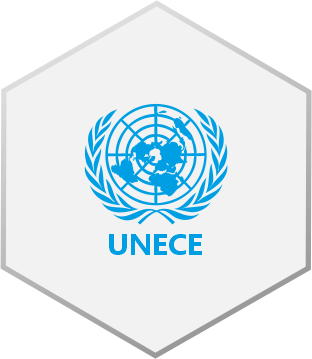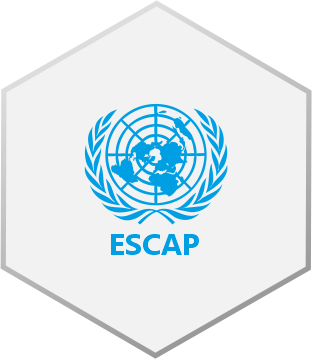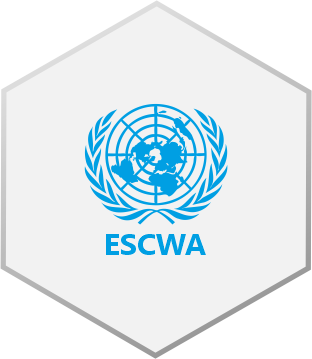17.4 United Nations Secretariat#
17.4.1 Overview of the United Nations Secretariat#
The United Nations Secretariat comprises the Secretary-General (🔗) and international UN staff members who carry out the day-to-day work of the UN as mandated by the General Assembly and the Organization’s other principal organs. It is organized along departmental lines, with each department or office having a distinct area of action and responsibility. Offices and departments coordinate with each other to ensure cohesion as they carry out the Organization’s day-to-day work in offices and duty stations around the world.
Secretariat entities with statistical mandates, as shown in Figure 22[1] are the following:
Department of Economic & Social Affairs (DESA)
Regional Commission
Other agencies of the UN Secretariat
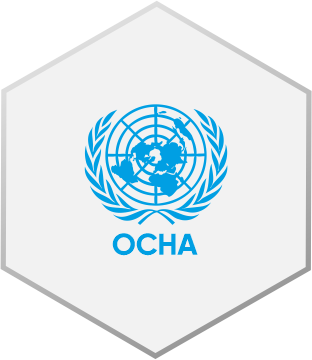
Office for the Coordination of Humanitarian Affairs (OCHA)
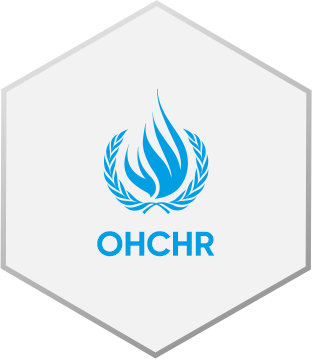
Office of the United Nations High Commissioner for Human Rights (OHCHR)
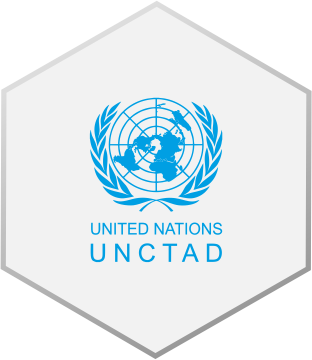
United Nations Conference on Trade and Development (UNCTAD)
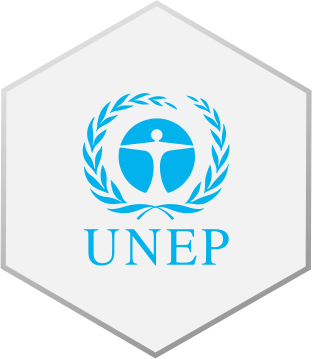
United Nations Environment Programme (UNEP)

United Nations Human Settlements Programme (UN-Habitat)
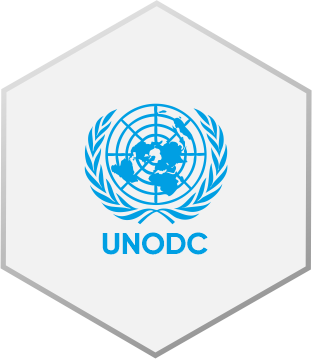
United Nations Office for Drugs and Crime (UNODC)
17.4.2 DESA: United Nations Statistics Division#
“The United Nations Statistics Division is committed to the advancement of the global statistical system. We compile and disseminate global statistical information, develop standards and norms for statistical activities, and support countries’ efforts to strengthen their national statistical systems. We facilitate the coordination of international statistical activities and support the functioning of the United Nations Statistical Commission as the apex entity of the global statistical system.”
In the field of statistics, the United Nations Statistics Division has a unique role in setting global statistical standards, pulling SDG data together and coordinating the work of the entire UN Statistical System in capacity building to strengthen national statistical systems under the leadership of national statistical offices. This central role stems from the UNSD role as Secretariat of the Statistical Commission, ensuring that countries are clearly in the driving seat.
The Statistics Division’s main functions (🔗) are:
Data: Collection, processing and dissemination of statistical information;
Methodology: Standardization of statistical methods, classifications and definitions;
Capacity Development: Technical cooperation programme;
Coordination: Coordination of international statistical programmes and activities.
17.4.3 DESA: Population Division#
The UN Population Division provides comprehensive and scientifically sound inputs for the analysis of progress made in achieving the goals and objectives on population and development contained in the outcomes of major United Nations summits and conferences, especially the Programme of Action of the International Conference on Population and Development, the key actions for its further implementation, and the 2030 Agenda for Sustainable Development.
It produces population estimates and projections and provides statistics and analyses on patterns of rural and urban population change; international migration; the implications on the development of the changing age structure of the population; fertility and mortality levels and trends; the interrelations among the population, the resources, the environment and the development and the evolution of population policies.
17.4.4 United Nations Regional Commissions (UNRCs)#
The United Nations has five regional commissions, each one with statistical mandates. The statistical mandates are carried out by intergovernmental statistical bodies serviced by a statistics unit of the secretariat. The statistical units report to both their respective Commissions and the UNSC. Table 2 lists the commissions and the corresponding bodies and units. More information in the weblink.
In general, the statistical mandate of the UNRCs includes technical cooperation with NSOs in the implementation of international standards, methods and analytical frameworks; contributing to the development of international statistical standards; and collection and dissemination of statistical data on the region. Their bi-annual work programmes are deliberated on and endorsed by their respective intergovernmental statistical bodies; these then go through the UN programming and budgetary processes.
Table 2: United Nations Regional Commissions and Statistics
Regional Commission |
Intergovernmental Statistical Body |
Secretariat Statistics Unit |
|---|---|---|
Economic Commission for Africa (UNECA) |
Statistical Commission for Africa (🔗) |
African Centre for Statistics (🔗) |
Economic Commission for Europe (UNECE) |
Conference of European Statisticians (🔗) |
Statistical Division (🔗) |
Economic Commission for Latin America and the Caribbean (ECLAC) |
Statistical Conference of the Americas (🔗) |
Statistics Division (🔗) |
Economic and Social Commission for Asia & the Pacific (ESCAP) |
Committee on Statistics (🔗) |
Statistics Division (🔗) |
Economic and Social Commission for Western Africa (ESCWA) |
Statistical Committee (🔗) |
Statistics Division (🔗) |
Economic Commission for Africa (UNECA)
The general mandate of UNECA is to promote inclusive and sustainable economic and social development in support of accelerating the economic diversification and structural transformation of Africa.
Its statistical mandate is to enable the African statistical system to produce high-quality statistics, data and geospatial information to inform sound and evidence decision-making through capacities building, advocacy, appraisal of relevant standards, and research on statistical concepts, methods and processes.
Economic Commission for Europe (UNECE)
UNECE has 56 member States in Europe, North America, Western and Central Asia, and aims to promote pan-European economic integration. All interested United Nations member States may participate in the work of UNECE.
Its statistical mandate is to support national statistical systems through methodological guidance, standards models and forums for various statistical domains, the modernization of statistics, and capacity development. By bringing together experts from across the statistical community, UNECE looks for common efficiencies and innovative ways to tackle persistent and emerging challenges in official statistics.
Economic Commission for Latin America and the Caribbean (ECLAC)
The 33 countries of Latin America and the Caribbean, together with several Asian, European and North American nations with historical, economic and cultural ties with the region, comprise the 46 Member States of ECLAC. Fourteen non-independent territories in the Caribbean are Associate Members of the Commission. Its purpose is to contribute to the region’s economic and social development, coordinate actions directed towards this end, and reinforce economic ties among countries and with other nations of the world.
Its statistics mandate is to improve, in tandem with pertinent sub-regional bodies, the production, dissemination and use of statistics for evidence-based decision-making in the region.
Economic and Social Commission for Asia and the Pacific (ESCAP)
ESCAP is the regional intergovernmental platform and development arm of the United Nations in Asia and the Pacific and is responsible for assisting its members and associate members in integrating the three sustainable development dimensions. Its research, intergovernmental and capacity-building functions support members in implementing the 2030 Agenda for Sustainable Development through nine subprogrammes. Its mandate derives from the priorities established in relevant resolutions and decisions of the General Assembly and the Economic and Social Council, including Council resolution 37 (IV), by which ESCAP was established.
The mandates of the Statistics subprogramme arise from a number of General Assembly, ECOSOC and ESCAP resolutions, see a/75/6 (Sect.19) (🔗).
Economic and Social Commission for Western Asia (ESCWA)
ESCWA provides a framework for the formulation and harmonization of sectoral policies for member countries, a platform for congress and coordination, a home for expertise and knowledge, and an information observatory. Its aims for member countries are to support economic and social development; promote interaction and cooperation; encourage the exchange of experience, best practice and lessons learned; achieve regional integration and ensure interaction between Western Asia and other regions; and, raise global awareness of the circumstances and needs of member countries.
Its statistics mandate is to: act as the regional focal point for the UN Statistics Division, United Nations organizations, other international and regional organizations and Member States; organize and coordinate activities to strengthen national statistical systems and harmonize official statistics; and coordinate the statistical data work of the ESCWA secretariat and the collection, production and dissemination of statistics.
17.4.5 United Nations Office for the Coordination of Humanitarian Affairs (OCHA)#
OCHA is the part of the United Nations Secretariat responsible for bringing together humanitarian actors to ensure a coherent response to emergencies. OCHA also ensures there is a framework within which each actor can contribute to the overall response effort.
OCHA provides information management services to the humanitarian community to inform a rapid, effective and principled response. It gathers, shares and uses data and information, underpinning coordination, decision-making and advocacy. OCHA also adapts tools and methodologies for monitoring humanitarian response, including developing joint analysis with local communities, and with development, peace building, environment and other actors.
OCHA manages the Centre for Humanitarian Data (🔗), which focuses on increasing the use and impact of data in the humanitarian sector.
17.4.6 Office of the United Nations High Commissioner for Human Rights (OHCHR)#
OHCHR is the leading United Nations entity on human rights. It is mandated to promote and protect the enjoyment and full realization, by all people, of all rights established in international law, including human rights treaties. The mandate includes preventing human rights violations, securing respect for all human rights, promoting international cooperation to protect human rights, coordinating throughout the United Nations related activities, strengthening and streamlining the United Nations system in the field of human rights.
In implementing its mandate, OHCHR employs a wide range of methodologies, including statistical methods for human rights analysis, assessment, monitoring, and advocacy. It engages in data collection, analysis, and dissemination of statistics and indicators related to human rights and the SDGs, including the compilation and publication of world maps and meta-data.
17.4.7 United Nations Conference on Trade and Development (UNCTAD)#
Founded in 1964, the first United Nations Conference on Trade and Development (UNCTAD) was held in Geneva, to address developing countries’ growing concerns on international trade and development issues. Today, UNCTAD is mandated to support developing countries to access the benefits of a globalized economy more fairly and effectively towards an inclusive and equitable global economic environment for trade and development. UNCTAD’s statistics are mandated as part of the broader mandate.
17.4.8 United Nations Environment Programme (UNEP)#
The United Nations Environment Programme (UNEP) is the leading global environmental authority that sets the global environmental agenda, promotes the coherent implementation of the environmental dimension of sustainable development within the United Nations system, and serves as an authoritative advocate for the global environment.
The UNEP statistics mandate focuses on strengthening the integration of environmental data and analysis, including the use of statistics and accounting to promote sustainable development and enhancing multi-agency collaboration on environmental indicators and monitoring. The mandate also covers scaling-up actions informed by environmental statistics and science, including integrated analyses across the three pillars of sustainable development.
17.4.9 United Nations Human Settlements Programme (UN-Habitat)#
UN-Habitat is the United Nations agency for human settlements. Its mandate is to promote socially and environmentally sustainable towns and cities to provide adequate shelter for all.
The statistics mandate of UN-Habitat is geared towards improving the worldwide urban knowledge base by supporting governments, local authorities, academia, private sector and civil society in the development, production and application of policy-oriented urban indicators, statistics and other urban information and influence local, national and global policy debates and help set the agenda for sustainable urban and human settlements development.
17.4.10 United Nations Office on Drugs and Crime (UNODC)#
The UNODC draws its mandate from the Commission on Narcotic Drugs (🔗) and the Commission on Crime Prevention and Criminal Justice (🔗) who address the need to integrate human rights in States’ responses to drugs, crime and terrorism, through various resolutions, among others.
UNODC collects, analyses and disseminates drugs and crime statistics. In line with these mandates, in addition to the World Drug Report and the annual report to the Commission on Crime Prevention and Criminal Justice on world crime trends, UNODC maintains several on-line databases and ad hoc statistical, thematic and analytical reports. UNODC also has a mandated role in supporting capacity building efforts that assist Member States in providing reliable and comparable statistical drug and crime information.
